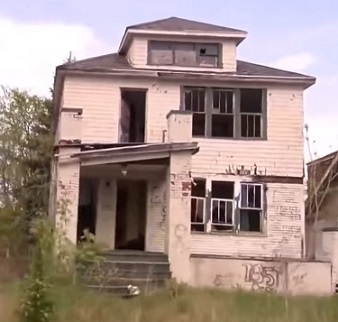
Economics is simply the supply and demand for goods and services, along with the price discovery where people agree to transact. Anything that artificially caps or supports price above or below the free-market amount makes everyone worse off. Normally, it is the government creating false prices that backfire with unintended consequences (as with every socialist effort). In spite of rent control disasters and not a single economist in favor of them, “free” and “cheap” never goes out of style with politicians to buy votes. The latest price control becoming popular again is rent control. Although rent control for limited buildings has been around forever to create welfare housing, two states just passed state-wide rent control programs: Oregon and Illinois.
Before I get to those two states, let me mention Detroit. Detroit began intervening in the rental market 6 months ago and it is having a big impact. The city wanted to address the small number of horrible slumlords renting junkers with a new government bureaucracy. Officials decided that rentals must have a certification, and part of the application, is that the property must have passed a physical inspection with a long list of requirements. Now, Detroit is very poor where 32% of households live below the poverty line. Where people are poor, rents are low, and where there are low rents – there is very little money for a high level of maintenance and repairs. So far, Detroit rentals have a 97% failure rate to meet the inspection requirements. To sustain all of the required elements is far too expensive to be supported by the average affordable rent to Detroit tenants. So landlords can either operate without a certification or they abandon their rental properties. Both of these are occurring in a big way: only a tiny percentage are applying for certification, and property managers across the city say owners are abandoning huge swaths of rentals; creating more blight for Detroit. I have also spoken with landlords selling their Detroit properties to buy rentals outside the city limits. Instead of improving a tiny number of rentals, Detroit is actively destroying their rental stock. Plus, the added bonus of raising rents for the niche neighborhoods that can support a higher rates.
This same phenomenon occurs every time government intervenes in a heavy-handed manner into the rental market:
- The number of available rentals plummets (converted to other uses, new development slows).
- Quality of rentals plummets as profits are reduced due to lower revenue.
- Rents increase far more than normal before the caps are introduced, and even after the caps over time because landlords will be eager to maximize any rent increase windows.
- Rental homes fall in relative value from the drop in potential profit, reducing income to the county from property taxes.
- Trailer park rent rates near these cities has been going up by 15% for the last two years.
- The outcome of the government intervention is usually the opposite of the policy intent of the politicians.
This year, rent control is being tried at the state level in Oregon and Illinois (using 6 regional rent control boards across the state). Oregon is suffering from self-inflicted governance. When the government forbids housing development to keep up with the influx of people (exactly like Seattle), then rent and housing prices soar. Now to “solve” the housing problem that the government created, they need more government interference in the form of rent control. In Oregon’s case, they are limiting rent increases to 7% per year. Sounds reasonable, but this rule basically applies solely to Portland where rent and home prices have been increasing far more than that rate from the growing population. I predict that all of Oregon rents will be increasing. Why? A landlord may keep rent low for many reasons, and due to new costs or regulations, need to raise them quite a bit in one year. But this is no longer allowed with rent control. Since landlords are now forbidden from “catching up on rent increases,” they are highly likely to make certain they get an increase each year to stay ahead of possible cost increases instead of being behind after they actually occur. Going forward, it is nearly certain that rent inflation across the state of Oregon and Illinois will be higher than their neighboring states.
*Oh, I nearly forgot to mention the corruption. Anytime you have rent control, you also get politicians, bureaucrats, and inspectors ripe for bribes, kickbacks, extortion scams, and more. Sadly, all of this tempting corruption is an ongoing issue that never goes away: higher rent rate increases, special exemptions, bribes for certifications and inspections, etc.
